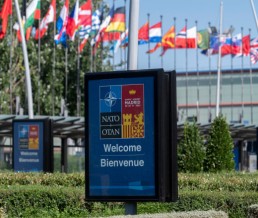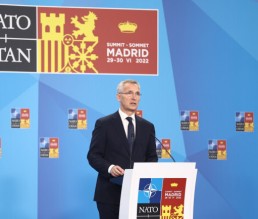About NATO'S HISTORICAL MADRID SUMMIT
This past week NATO leaders, and their allies from all over the world, have met in Madrid to plan the future of the Alliance. In this hour of need, their meeting shall decide how to face Russian aggression.
In the Summit’s agenda the following topics were highlighted:
- Strengthening NATO’s deterrence and defense;
- Providing support for Ukraine’s war efforts;
- Reinforcing partnerships, and maintaining an open door for a possible extension;
- Improving and innovating new security programs within the Alliance’s area of influence;
- Enhancing NATO’s resilience through Transatlantic unity and Alliance solidarity.
The importance of this summit has been heightened by many factors, such as: the unprecedented level of partnership with the European Union, the historical discussions between NATO, Finland and Sweden, the presence of the Pacific leaders: Australia, South Korea, Japan and New Zealand at the summit. All of these facilitate the further development of partnerships against common threats.
The Alliance discussed to further the support for Ukraine, by providing them with military equipment, war funds, food, medical aid, and many other lethal and non-lethal aid.
Another significant point was provoked by Russia’s violation of the norms and principles that contributed to a stable and predictable European security order. As a safety measure against Russian aggression, the Alliance composed the Strategic Concepts 2022. Therefore, there are now over 40,000 troops under direct NATO command, backed by air and naval assets. NATO has doubled the number of battlegroups to eight, extending from the Baltic Sea in the north to the Black Sea in the south.
The Head of States have also discussed the further development of internal unity, promoting the Transatlantic bond, improving cyber security, and prevention plans against terrorist incursions. Moreover, the Alliance aims to spur the growth of its members through the creation of a start-up fund, as well as protecting their future interests by proactively responding to the threats provoked by climate change.


